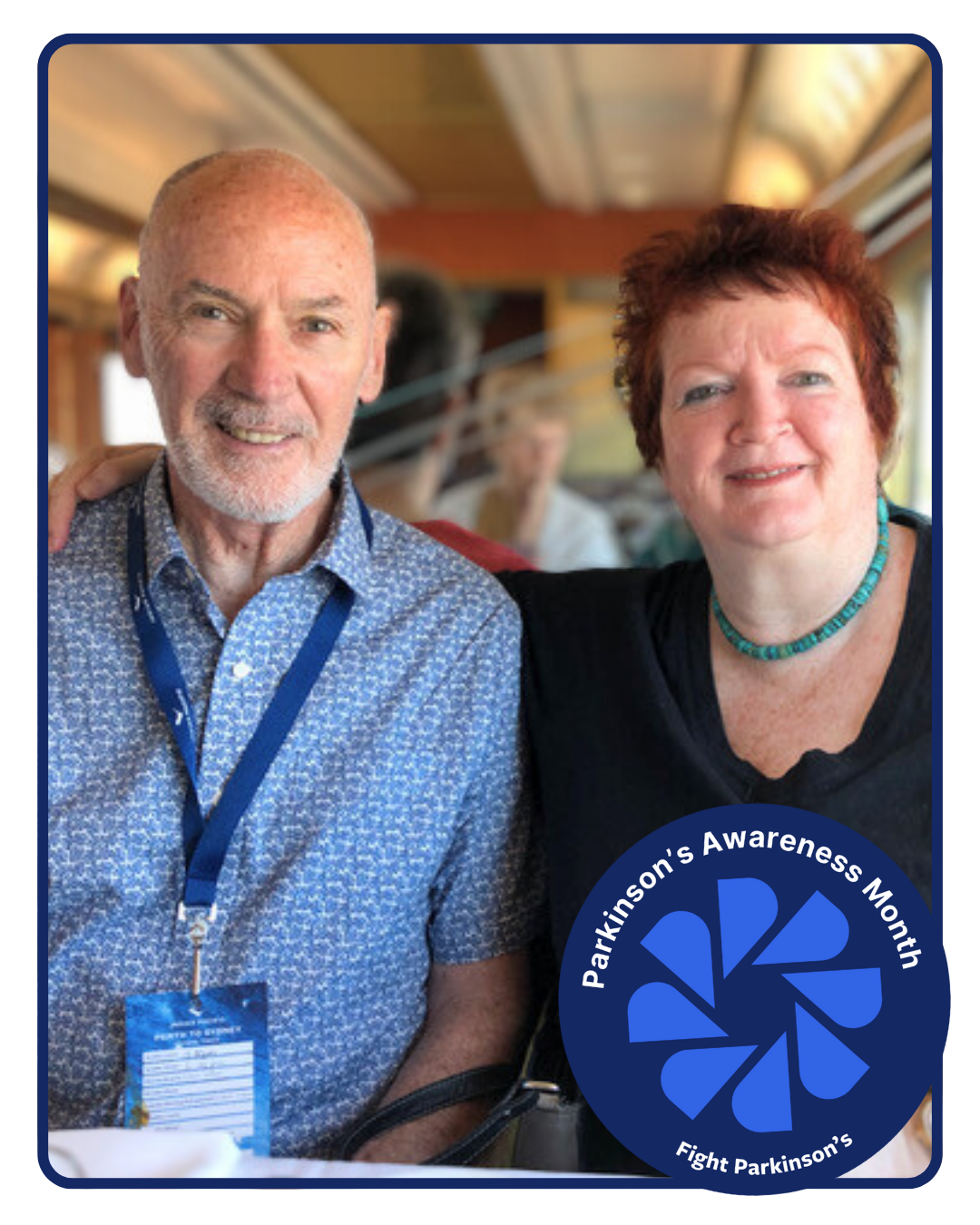It was an easy choice for Laura to care for Laurence, she wants others to know support is available
A love for the ages gives Laura a new role
Laura Power Davies says her marriage is “a love stories for the ages” and 10 years since her husband Laurence’s Parkinson’s diagnosis their love is as special as when they first met.
Laurence was diagnosed with Parkinson’s in 2018, but the pair’s story begins well before then.
Their relationship began in Alaska in 1987 and continued to Melbourne where the couple ran a chiropractic clinic as a psychologist and chiropractor respectively. Prior to this, Laura was a multi-disciplinary artist and in her early 50’s Laura found herself drifting back towards the fine arts. In recent years she has found this has helped her in more ways than anticipated.
Understanding the medical system after a Parkinson’s diagnosis
Navigating Laurence's diagnosis was challenging, but Laura made a point to remind him that Parkinson’s is something they would tackle as a team.
Despite existing knowledge of the medical system, they found themselves entering a new world.
“You're dropped into a landscape and you have to learn a whole new language. And what I've learned about Parkinson's has been profound; everybody with Parkinson's has their own version of it,” she said.
As Laurence's symptoms progressed, Laura gradually took on the hardest role of her life – being his carer.
"In between all that caring, you're dealing with all the feelings of grief because you're watching the person you love decline by degrees. They call it the long goodbye.”
Obstacles and challenges
Now 70, she reflects on difficulties navigating the aged care system.
"It's so much for anyone to take on, especially when you're older and have to take care of someone else while trying to take care of yourself,” she said.
"I basically broke. It's taken me four years to get to the point where I am now, looking after my own health as well. I went back to counselling and I finally was able to make the decision for him to go into care because I had to start to look after my own health."
The importance of self-care
Laura found peace in her art, with practices like crochet a form of self-care. In her art practice today, she explores the themes and feelings associated with Parkinson's, including her unique perspective as a carer.
One of her textile projects has incorporated one of Laurence's dress shirts that he would wear on their trips to the opera and the ballet. Through her pieces, Laura creates visually beautiful work while raising awareness about Parkinson's and those affected by it.
Laura has also fallen in love with exercise. She says it has made her physically and mentally stronger, important traits for a carer.
“I’m so grateful that I persisted and prioritised exercise because it’s one of the things that has gotten me through a very difficult time.”
Support for Parkinson’s carers a group effort
Laura is also grateful for the Newport Parkinson's Support Group that she connected with in 2022.
"There were two other women in my age group and because we were all stressed to the max and at the point of breakdown, we formed a trifecta of three amazing women and it has saved our lives."
Laura's art and her network of support have been a source of strength for her, and she encourages other carers to find ways to take care of themselves and take care of others.
It can be easy for carers to overlook their own needs when focused on taking care of someone else. Not taking time to look after yourself can lead to carer’s burnout. By prioritising your own well-being, you'll be better able to provide the best care possible for your loved one.
If you are caring for someone living with Parkinson's, support is available. Call Fight Parkinson's on (03) 8809 0400 for details of your local Peer Support Group, or to confidentially discuss the challenges you are facing with our Health Team. They can also advise on other counselling services in your area.
